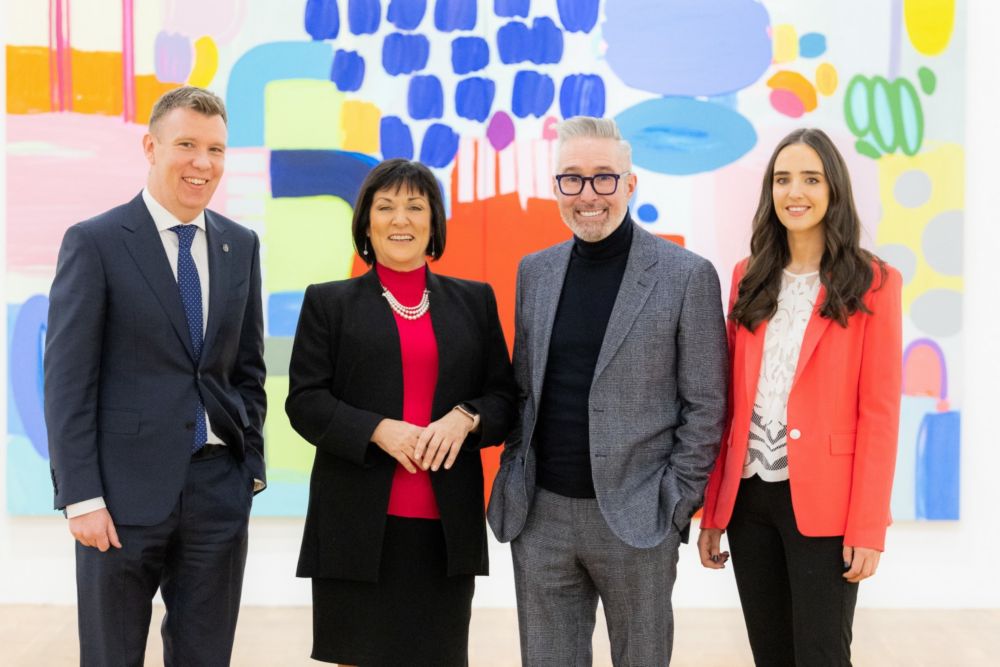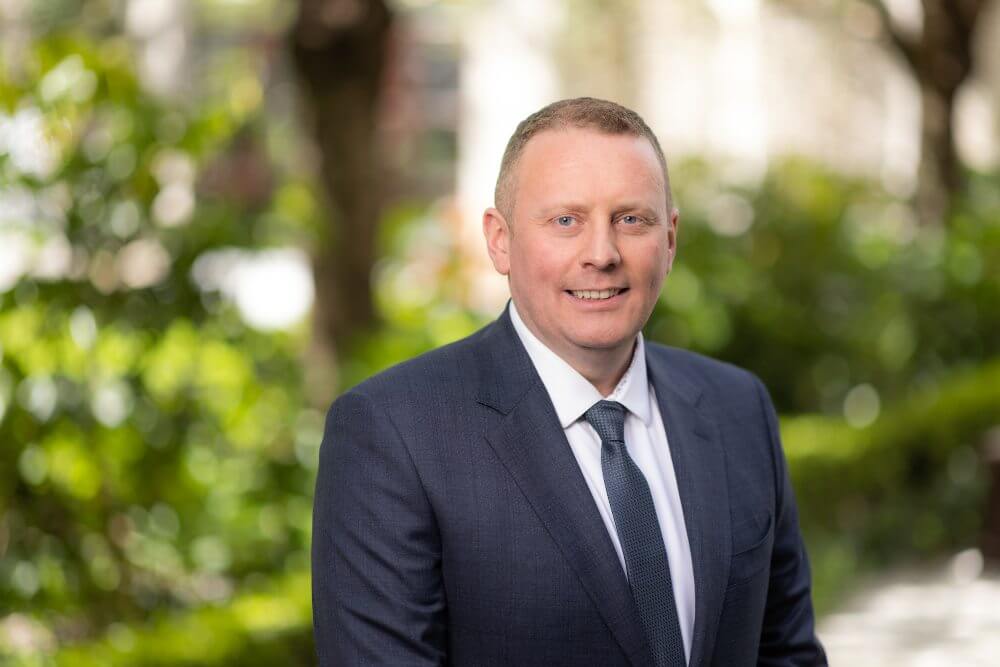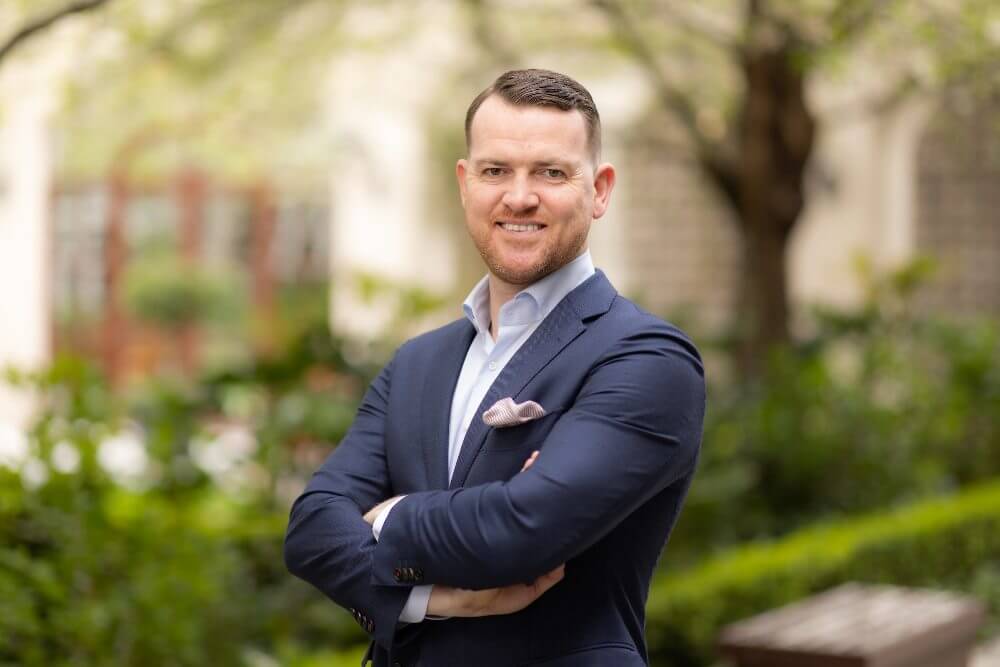Sisters Helen and Deirdre O’Neill’s different but complementary skillsets led to the establishment of Hertility Health, a business that is changing the scales for women’s health and reproduction. Finalists in the upcoming EY Entrepreneur of the Year awards, Helen O’Neill talks about the inspiration for the business.
Dr Helen and Deirdre O’Neill, founders of Hertility, are among the 23 finalists shortlisted for this year’s EY Entrepreneur Of The Year awards. They are among the seven finalists shortlisted in the emerging category.
Dr Helen O’Neill is a tenured lecturer at University College London, specialising in Reproductive and Molecular Genetics. Alongside her teaching responsibilities, she leads her own research group and holds the position of Director of Reproductive Science and Women’s Health.
“Healthcare was never built for women, and so we have built Hertility Health from the ground up dedicated to women”
With an academic background in Genetics and an MSc in Prenatal Genetics and Fetal Medicine from UCL, she conducted her PhD and postdoctoral research on the genetics of ovarian development at the National Institute for Medical Research.
She is actively involved in teaching both master’s and medical students, many of whom have gone on to hold senior positions in research, clinical work, IVF, and pharmaceutical companies worldwide. She is recognised as a thought leader in reproductive science and has been featured in interviews with prominent media outlets such as the BBC, BBC World News, Sky News, and the Guardian. Her expertise has been acknowledged through accolades like being listed in the Top Twenty Women in Data (2019) and the Top 50 Women in European Tech by the Financial Times.
Dr O’Neill’s leadership extends to the Royal College of Obstetrics and Gynecology Genomics Taskforce, positioning her with valuable connections to global leaders in obstetrics, reproductive medicine, and assisted reproduction genomics, particularly in the field of IVF. Her involvement in this task force underscores her influence and engagement in advancing genomics research in the context of reproductive health.
Her sister Deirdre O’Neill is the co-founder and chief commercial and legal officer at Hertility Health.
She is a dual-qualified lawyer in England and Ireland with a masters in Medical Law from King’s College London. Her Masters focussed on the global regulation of bio-sciences with particular regard to embryo research. Deirdre specialises and has worked in corporate law and venture capital for a number of years.
Previously, Deirdre had been working in the venture capital and mergers and acquisitions team at Cooley LLP before spearheading commercial strategy, legal, scaling, regulations and business operations at Hertility.
So what is Hertility? Hertility is the first to offer a 360-degree view into each individual woman’s health. The team are passionate about their research and innovation for diagnostics in order to provide end to end care from menstruation through menopause.
Hertility provides female health assessments and tele-consultations with experts in fertility, menopause, PCOS, endometriosis, and gynaecology both direct to consumer and to organisations as an employee benefit, alongside scanning and clinic referrals. They believe that through proactive and early diagnosis of reproductive health issues, as well as hormonal monitoring they can improve women’s well-being, health and the chances of avoiding invasive procedures.
Their big picture aim is to change attitudes around reproductive health, including in the workplace, and to encourage women to be proactive by tracking their reproductive health and fertility. They work with corporates to become Reproductively Responsible™ by providing CPD accredited workshops, policy support and whole of workforce health screening. Some of their current partners include Bloomberg, Channel 4, the Telegraph and Philips.
Twin geeks
“We never planned on this,” says Helen when asked about twins running a business together. “We’ve had very independent careers and we’ve been very staunchly independent in our approach to things. We’ve always wanted to be individuals because as twins people classify you as the same. So you end up working twice as hard to differentiate yourself from one another.
“We’ve had very different careers as Deirdre is a lawyer and I’m a scientist. But it was kind of strange the overlap in our professions. We both moved to London 16 years ago to do our Master’s – I went to do a Master’s of Science in prenatal genetics and fetal medicine and University College London and Deirdre did an MA in Medical Law. It just so happened that I was literally working with embryos and she was working on embryo regulation.
“So despite this strange cross-pollination of ideas, we can both bring insights into it.”
Helen laughs that each is the yin to the other’s yang. “She loves the things that I hate and vice versa. She has skill and expertise in areas I don’t and vice versa. So it means that both of us can forge ahead and do the things we love and are good at without being distracted by the parts of the business we don’t feel comfortable with. Plus nobody can be an expert across all areas.
“It all just fell into place like a puzzle in ways and we never could have planned it the way it has worked so well.”
After completing her Master’s in prenatal genetics, Helen went on to do a PhD in stem cell genetics and developmental biology and became a tenured lecturer at University College London while at the same time researching fertility and women’s health. Deirdre built a career in the world of venture capital and IP law.
By women, for women
One night after the two sisters had been at a concert Deirdre noted how many businesses that had no intellectual property (IP) in medicine or health were continually raising capital and pointed out that with all her knowledge around fertility and women’s health, Helen could go into business. Hertility was incorporated that very night.
It was a match made in heaven. Helen knew the science and Deirdre could master the business strategy and legals. They were joined by co-founder and chief operations officer Dr Natlie Getreu and a dream team was formed.
From the offset, the founders knew they were wading into a world where less than 2% of women founders attract venture investment.
“The problem is systemic. Firstly male investors feel like they know better, but it gets more complicated when you’re talking about a female-related problem you are trying to solve and men don’t even know there’s a problem. So you’re doubly confronted. Some men don’t even know there’s a market in this and we’re pointing out that this is 52% of the planet and no one has built a solution around this.
“So it was extremely frustrating just trying to get investors to understand.”
Meetings after meetings with male investors proved fruitless. But one female investor was on board after 20 minutes into the pitch.
“Everybody we knew asked why something like this that is so natural and intuitive to women doesn’t exist. So yes, we really noticed a difference with male and female investors.”
A source of truth on female health
Helen explained that Hertility offers an end-to-end solution from testing to diagnostics through to clinical treatment and services. “We built Hertility to provide the opportunity for somebody to make better informed decisions about their fertility and their reproductive health.
“For many women, they don’t know if they are fertile unless they are trying to conceive and for many there is an innate biological question of ‘am I fertile?’ So we built a very comprehensive health assessment that enables us to calculate a person’s fertility, whether they’re going to perimenopause, whether they are menopausal and cater to their clinical needs, whether it’s to get an ultrasound scan to look at their uterus and ovaries, whether it is to speak to a gynaecologist and therefore be referred to for fertility treatment. We provide an end-to-end wraparound care for every women from menstruation through menopause.”
Key to Hertility’s offering is the intellectual property being created. “We have built the largest database of female gynaecological pathologies and we have built predictive algorithms for 18 of the most common reproductive health conditions. What we’ve built is a very powerful clinical decision tool.”
From a business perspective, the target market is both business-to-business and business-to-consumer. The journey starts online and provides actionable insights and next steps that should be taken clinically.
Key to the journey is meeting medical regulations. “We have worked very hard to get our software recognised under medical device regulation and ISO accreditation. The majority of our investment has been put into ensuring we are clinically regulated, have Quality Care Commission approval, and this means we can treat, diagnose and prescribe.”
Dr O’Neill said that Hertility is regulated in the UK and EU and is in the process of getting FDA approval for the US market.
The business is already generating revenues having launched its tests in 2020. “We did $1.7m in revenues last year and our forecast is to do $7m in revenues this year. We’re going to be profitable within the next 12 to 24 months.”
Having raised $15m in funding to date the company is currently not fundraising. It recently won an award at the Boston Consulting Group’s Social Impact Awards, competing against 1,600 companies, and which landed it £1m in non-diluted funding towards experts to help build out its technology.
“Our goal is to be the single source of truth for women’s health globally – to be the leading women’s health provider in the world,” Helen concluded. “Healthcare was never built for women, and so we have built Hertility Health from the ground up dedicated to women.”





